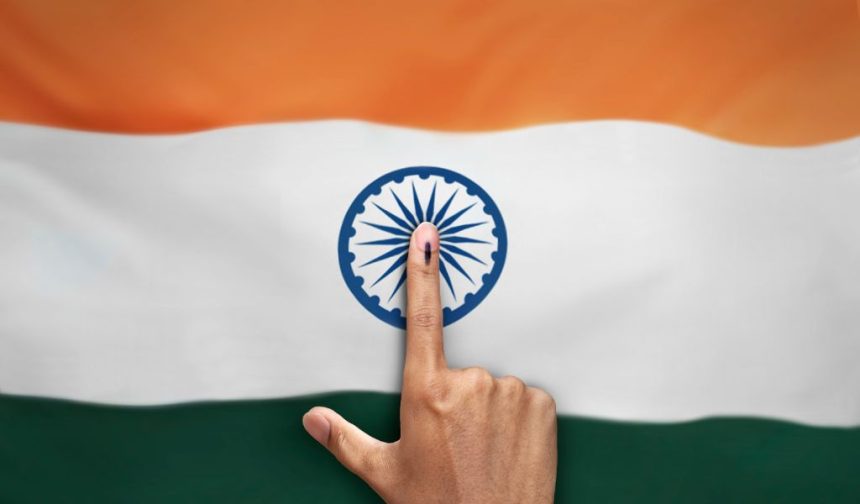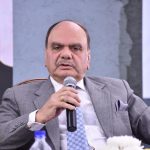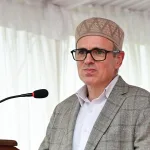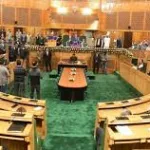FRAGRANCE OF IDEAS
General elections and the Mandate 2024 have been analysed and interpreted in many ways by several analysts, authors, politicians, commentators and columnists over the last couple of months. Their bearings have also been well narrated and explained by a number of political leaders and their supporters by their actions in and outside the parliament during the inaugural session of the 18th Lok Sabha held w.e.f 24 June, 2024. Now, we are due for the next storm as the parliament meets again for the Budget/Monsoon session w.e.f 22 July 2024.
The number of seats the opposition got this time in the Lok Sabha has been taken by it as a licence to disregard and silence the Chairs of the two houses of parliament and bring the government to its knees on every point of discussion and debate. Leaders of opposition in both the houses have taken a lead in this direction and led from the front to disrupt the proceedings of the two houses on several occasions. Their unruly and irresponsible behaviour is a testimony of the fact that they will continue with the same intensity and purpose at least in the near future. They have given a wild hint that they aren’t ready to listen to the duly elected Prime Minister of the country in any case.
On the other hand, the government led by the PM Narendra Modi has held the fort with total authority giving a clear message that the PM was in complete command and the BJP-NDA was fully behind him. He has by far also expressed his intent very well that he was in power in continuity for the third term, meant business and will be implementing his agenda and the party manifesto in the same way as he did for the last two terms. He has exhibited his confidence very well in his party meetings, in the parliament, in the big rallies that he addressed and also during his recent visits to Italy, Russia and Austria after the elections. He was honoured by the Russian President, Vladimir Putin with the highest civilian award of Russia, fifteenth such award by a nation in a row, unparalleled in India’s history. His global image has also definitely enhanced with his victory for the third time.
The PM’s confidence is not unfounded or misfounded. He knows well that the results were deeply impacted by the strategic voting of a particular class of voters across the length and breadth of the country. The BJP-NDA didn’t take the negative campaigning and the false narrative spread by the opposition seriously in time. There are instances to confirm that the preparations to that effect were initiated by the opposition one year before the general elections. Indi-Alliance was the net result of the same preparedness to dislodge the government led by PM Modi at all costs.
They even went to the extent of going into the elections without electing or selecting their leader of the alliance who would have been also their PM’s candidate eventually. They did so in order to avoid a possible conflict among themselves on the position of the future PM. Almost all the groups in their alliance compromised their positions ideologically, electorally and also space-wise with only one motive, i.e. to bring down PM Modi and the BJP.
There was/is already a very serious anti-incumbency factor involved in regard to all the global leaders throughout the world and their re-election after two terms was/is seen as an impossibility by most of the analysts. PM Modi was also listed by the opposition leaders in India and their ‘allies abroad’ in this very group of global leaders now due for his ouster after two continuous terms. In addition, the opposition’s intent and narrative were based upon some important historical statistics as well and they believed in them unhesitatingly with their clear mind-set.
After the 1962 general elections in India, no government was elected for the third term in a row and that happened three times in the recent electoral history of India. The Vajpayee government in 2004 fought the elections for the third term in a row but it didn’t complete five years in its first term. Therefore, there is no further debate on this issue.
The three governments, all led by the Congress, in 1977, 1989 and 2014 lost their third term comprehensively. In 1977, it reached its lowest figure of seats (till then) of 154 and lost 56% of its seats with a loss of 9.16% in its vote share. In 1989, the Congress lost 53% of its seats with a loss of 7.33% in its vote share. In 2014, it lost 79% of its seats with a loss of 9.24% in its vote share. And in contrast, the BJP led by PM Modi this time (while fighting for the third consecutive third term) lost only 21% of its seats with a loss of mere 0.8% in its vote share. It means that there is no major breakdown in the popularity of BJP led by Modi; and thus his leadership of the nation is intact and strong.
The LOP in the Lok Sabha, Rahul Gandhi was so overwhelmed with the statistics of the past that he predicted the Indi-alliance getting 295 seats in the final results. He actually got this figure from 1977 when the Janta Party swept the elections and defeated the Congress led by Indira Gandhi and got 295 seats. Thereafter, it was joined by the Congress for Democracy led by Jagjivan Ram with his 28 members taking the final figure of the Janta Party to 323. Rahul Gandhi expected the same to happen once again this time and also kept his eyes on the major non-BJP components of the NDA to shift over to their side. The opposition’s failure to convert the historical statistics into a reality hasn’t convinced them as yet nor have they realized that there was no great upheaval in the voter base of the contending parties.
The following details about the BJP’s vote share might be interesting in this context. It got 36.56% votes (almost the same as in 2019) at an all-India level. The BJP got an overwhelming support in a number of states like Gujarat (61.86%), MP (59.27%), HP (56.44%), UK (56.81%), Delhi (54.35%), Chattisgarh (52.65%), Orissa (45.34%), Tripura (70.72%), Assam (37.43%), Karnataka (46.06%), Goa (50.79%), Jharkhand (44.60%), Arunachal Pradesh (48.87%), Telangana (35.08%) and Andaman & Nicobar (50.59%).
Then in the states where the BJP suffered major seat losses, its vote share is perfectly intact and solid but the tactical voting against BJP cost it a loss of bigger magnitude that needs immediate course correction by the BJP. These states primarily are UP (41.37%), Rajasthan (49.24%), Haryana (46.11%) and West Bengal (38.73%).
The states where the BJP went into the elections with overwhelming alliances with the NDA partners gave the party its due vote share. But it lost its seats again due to the strategic alliance of the Indi-allliance, tactical voting of a few communities against the BJP and the fake narrative spread on digital, social, electronic and print media against PM Modi in person and the BJP as a party. These states are Maharashtra (26.18%) and Bihar (20.52%). The loss of seats in Maharashtra surely hurt the BJP and the NDA both, however, some loss of seats in Bihar has been compensated by a big victory by the NDA in the state despite a strong campaign of opposition therein.
Then in the states like Kerala, Tamil Nadu and Andhra Pradesh it has increased its vote share considerably. Even in the UTs of J&K, Ladakh, Puducherry, Dadra & Nagar-Haveli and Chandigarh, the BJP has maintained its vote share and a few of these UTs have also contributed to the seat share of the BJP-NDA in a very positive manner. The narrative manufactured by the opposition and particularly by the Congress that PM Modi has lost the moral authority to rule as he has got a lesser majority is completely unfounded and false. Prime Minister Modi, BJP and NDA continue to command the faith and trust of the people of the country in their continuous third term as well and it is supported by the facts and figures available on the ground.
The vote share in different states coupled with the seat share this time has established BJP as a pan-India political party with its base in every nook and corner of the country. This privilege was available to the Congress alone only a few decades ago and the stark reality is that the BJP has replaced the Congress as a real national party in its consecutive third term in office. The Congress and the other groups in the opposition don’t want to recognise the hard facts and reality and have thus continued with their fake narratives against the government led by PM Modi. They are determined to tread the same path irrespective of the results on ground.
BJP has a bigger responsibility to take its cadres and core voters along with who remain subdued due to the election results. This is surely a major challenge before the party. The core voters and the cadres of BJP have lost their faith in the slogans like, “Sab ka saath, sab ka vikas, sab ka vishwas”. They have witnessed an anti-thesis of the slogan this time where communities could vote tactically and with one voice against the BJP despite it helping them all the way for the last one decade. They want their leadership to look towards them (the cadres & core voters) and prove themselves as a “party with difference” in real sense keeping their ideological thrust and moorings intact. They aren’t for any sort of compromise in this regard, be it the security of the country, corruption issues or issues pertaining to the civilizational concerns of the nation.
They want BJP leadership to come to their rescue when they are hurt, listen to them and solve their issues, particularly in the states like West Bengal, Kerala, J&K, Tamil Nadu & Karnataka where a hostile atmosphere has been allowed to grow against them. BJP has to put its own house in order rather than to take care of its adversaries and opponents. Once its own house is set with its vote share solidly behind it, the BJP under the leadership of PM Modi can make a huge difference paving way for the fourth term after a successful third term. That is precisely the interpretation of a deeper depth of the Mandate 2024….!
(The author is a senior BJP and KP leader, Human Rights Defender, author and columnist and can be reached at [email protected])








